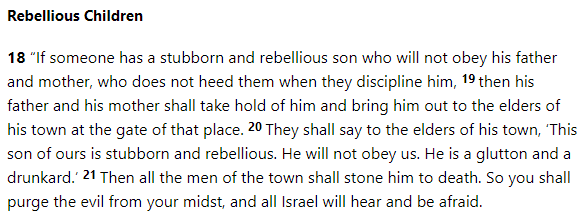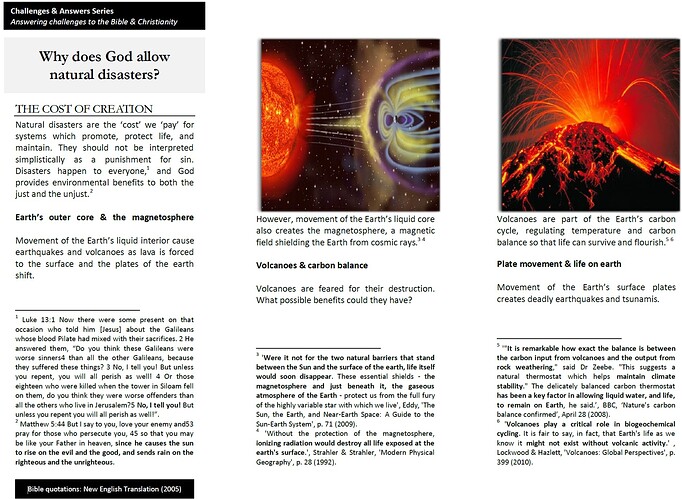Yes, you’re clear now, but still wrong. Both God and a parent have options and may exercise those options, but a parent can’t violate an adult child’s free will any more than God can. If a son or daughter is bent on self-destruction, there’s only so much a parent can do other than having them incarcerated or committed to a rehab/psychiatric facility against their will (thereby taking away their choice in the matter).
Edit: Or the parent could always invoke Deuteronomy 21:18-21 and have the rebellious child stoned.

I’ve used that example for years to say the Garden was never a “test” of obedience.
Always an interesting question. Regarding “heaven,” the two options seems to be the “beatific vision” and the resurrection into a “spiritual body” on the physical Earth. I agree with the latter (See Middleton: A New Heaven and a New Earth.)
My thinking from there involves the “cost of creation” argument. (See this old thread:)
TL/DR version: Everything we call “natural evil” or natural disaster is actually a condition of life on this planet. The planet’s liquid core (responsible for earthquakes and volcanos) generates Earth’s magnetosphere, and plate tectonics scrubs CO2 from the atmosphere. Just one example.
IOW, a “perfect” world (instead of a “very good” one) would not be conducive to life. Harsh conditions, climate change (new conditions), “natural” disasters (asteroid extinction of dinosaurs), etc., have all contributed to natural selection and adaptation. The end result isn’t just human beings on top of a pyramid, but life expanding into every ecological nook and cranny of this planet. (We may or may not be a “Goldilocks” in this universe. I have no idea or opinion on that one.)
I take a similar view of human evolution in light of Genesis 1-3. If God desired to make a creature capable of freely choosing to love others (not limited to conspecifics) and God, and also capable of freely choosing between “good” and “evil,” the evolutionary path seems the only one to fit the bill.
Edit: Forgot to answer your original question about “heaven.” If resurrected humanity exists as “spiritual bodies” on a physical Earth, “sin” won’t exist, but if the earth is still filled with plants and animals and sea creatures, then death, disease and pain will still be part of the equation. Perhaps our role for millennia will be to undo the damage we have done?
Have you seen The Good Place?
(Sorry for my absence. Life got in the way. This post is already too long, so I’ll reply to others in another post.)
